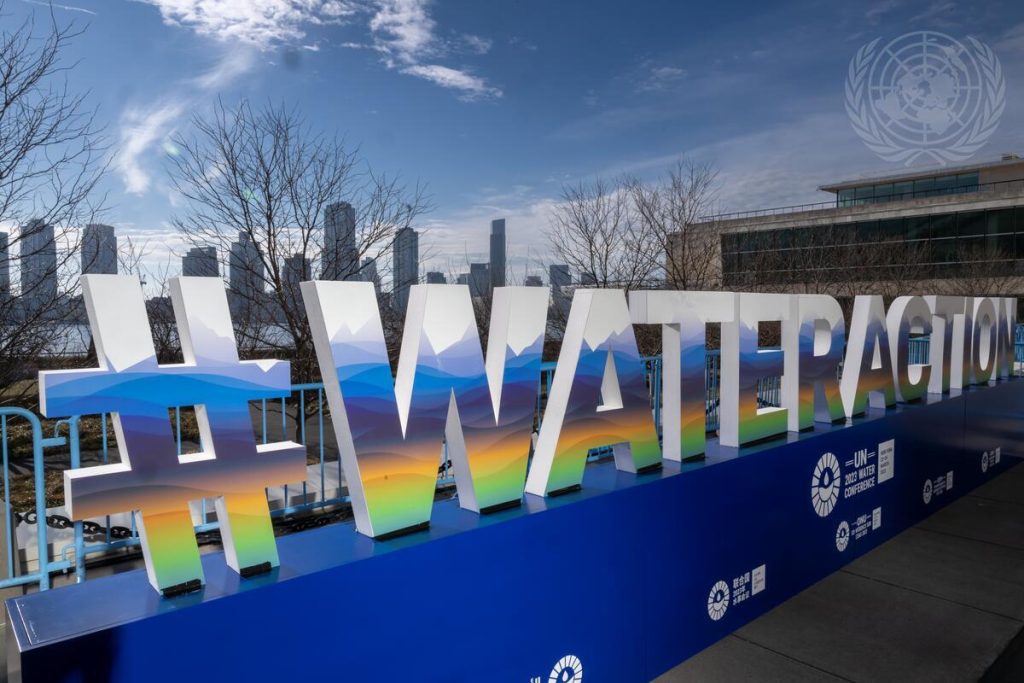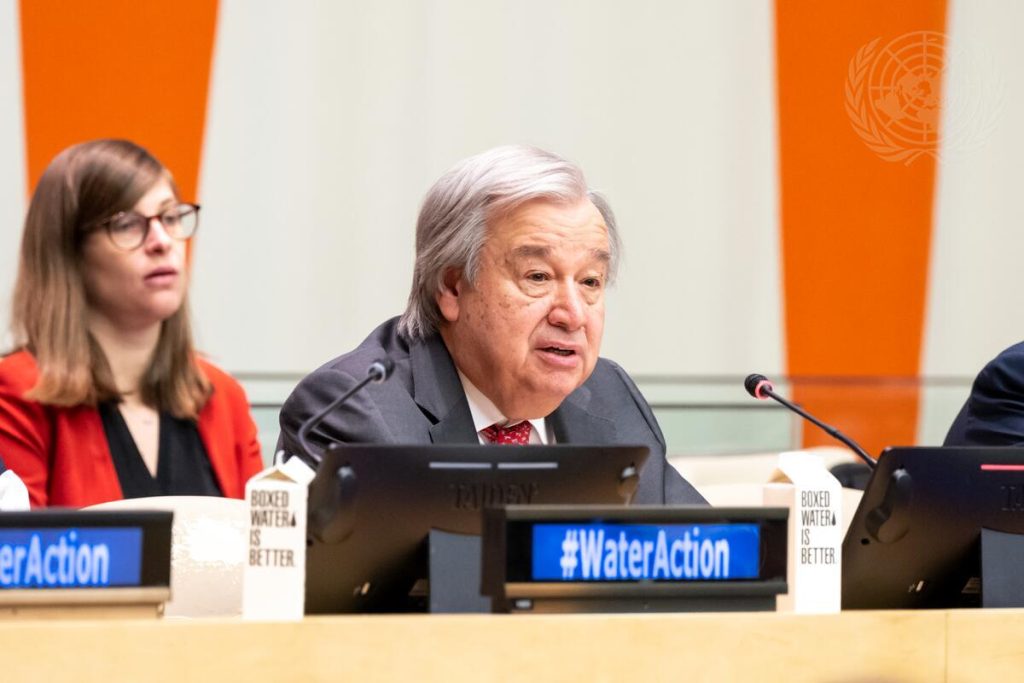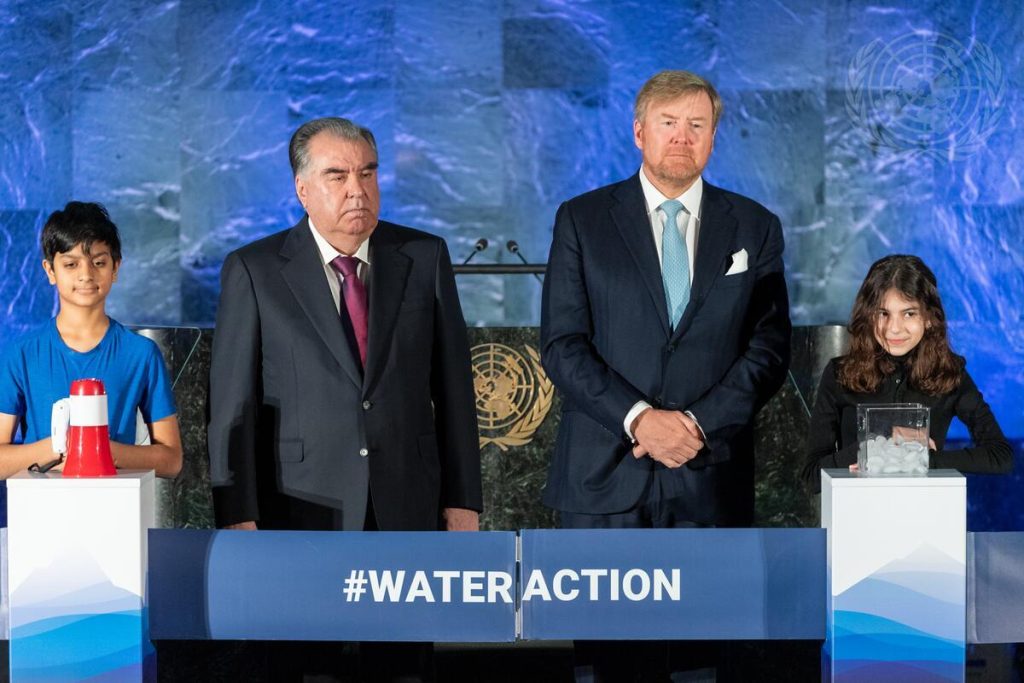First UN water conference in half-century yields new promises, no binding actions

The first United Nations Water Conference in almost half a century was held last month. Representatives from governments, NGOs, academia, and the private sector gathered in New York City to address the escalating global water crisis and find solutions for sustainable water management. It was described as a historic moment to tackle the growing water crisis and guarantee a water-secure future.
“Water is in deep trouble,” U.N. Secretary-General António Guterres said during the conference. “We are draining humanity’s lifeblood through vampiric overconsumption and unsustainable use, and evaporating it through global heating. We’ve broken the water cycle, destroyed ecosystems, and contaminated groundwater.”
The conference focused on the impact of climate change, increasing water scarcity, and the urgent need for action. According to the United Nations, two-thirds of the global population may face water shortages by 2025, and by 2050, up to 5.7 billion people could be living in areas where water is scarce for at least one month a year. Therefore, the conference aimed to develop goals and targets for sustainable water management and explore ways to ensure global access to water resources.
Various countries and organizations made pledges and commitments during the conference to ensure sustainable water management. For example, the United Kingdom pledged to provide £1 billion in funding for water infrastructure in developing countries, while India pledged to increase water efficiency and conservation efforts. Similarly, the United States is committed to expanding its WaterSMART program, which promotes sustainable water supply through efficient use and management. It announced commitments of up to $49 billion, promising to provide more detail in the future.

However, some experts were critical of the conference, suggesting it lacked concrete actions and funding commitments.
“What we need now is concrete action,” Francesco Rocca, the president of the International Federation of Red Cross and Red Crescent Societies, told Devex.
“The world must step up investments in clean water and sanitation infrastructure that can withstand the fallout from disasters, conflicts, and climate change. To address the climate crisis and its devastating impacts on water resources, we need more than short-sighted solutions,” he said.
Nick Hepworth, executive director of Water Witness, echoed similar sentiments telling the Guardian,“Trying to solve one of the greatest challenges facing humanity with voluntary commitments and solutions based on half-baked evidence is like taking a knife to a gunfight – it simply isn’t good enough, and represents a betrayal of the world’s poor who bear the brunt of the water crisis.”
Despite these criticisms, the conference saw governments and businesses make several important pledges and commitments toward sustainable water management. One of the key outcomes of the conference was the adoption of the “Water Action Agenda,” which emphasized the importance of water for sustainable development and called for urgent action to address the water crisis.

The declaration recognized the vital role of water in achieving the United Nations’ Sustainable Development Goals and called for an integrated approach to water management, including “policies and investments that account for the water-energy-food nexus, taking into account the environmental, social, and economic dimensions of water.”
Moreover, the declaration called for increased investment in water infrastructure and technologies and better stakeholder cooperation and coordination. It also emphasized the importance of empowering women and girls and ensuring equal access to water resources, recognizing that they are often disproportionately affected by water scarcity and have a critical role in water management.
One of the most notable pledges made during the conference was the United Kingdom’s commitment to providing £1 billion in funding for water infrastructure in developing countries. The funding will support water supply and sanitation projects and help communities access clean and safe drinking water.
In addition to financial commitments, the conference also discussed technological solutions for sustainable water management. For example, there was a focus on using artificial intelligence and machine learning to monitor water usage better and identify areas where water conservation efforts could be improved. There was also a discussion of desalination technologies and their potential to provide a reliable source of fresh water in areas where water scarcity is a significant issue.
The conference also highlighted the importance of improving water governance and management at the local and regional levels. There was a recognition that water scarcity is often a result of poor management and misallocation of water resources and that improving water governance can play a crucial role in ensuring sustainable access to water resources.
Home More Like ThisTweet